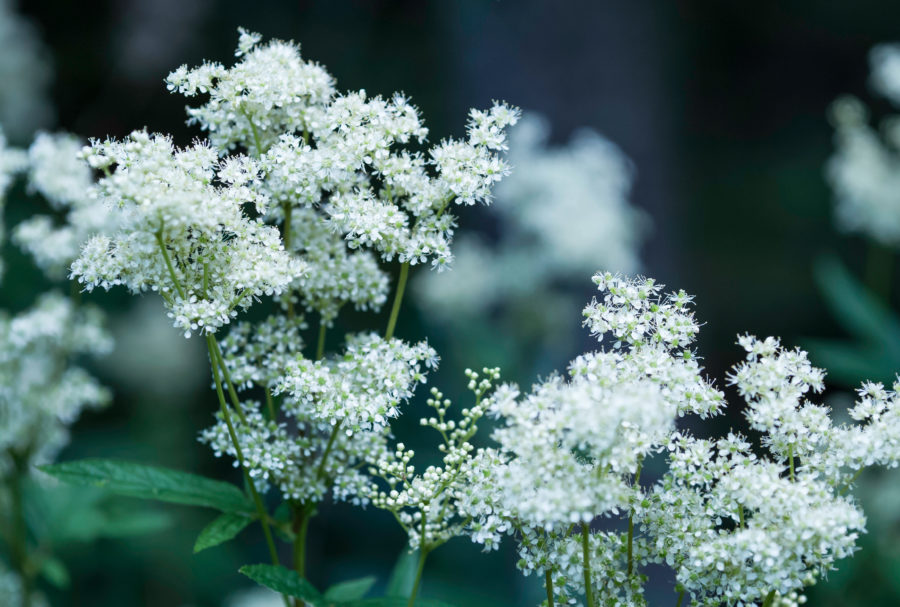A look at the many benefits of meadowsweet and how you can incorporate this healing herb into your horse’s health routine.
Walk into a field of meadowsweet and inhale the sweet scent of this fragrant herb. Used for centuries to heal various ailments, from rheumatism to digestive upset, it’s sweet in many ways beyond its aroma. This tall and lovely herb is a must-have in your horse’s herb chest – as a great long-term alternative to NSAIDS and ulcer treatments, you’ll never want to be without meadosweet.
Plant parts and uses
Most medicinal uses of meadowsweet feature the plant’s flowers, flower buds and leaves in a tincture or tea. The herb’s medicinal components include salicylic acid and tannins. Salicylic acid is the founding compound of aspirin; in fact, it was actually an extract of meadowsweet that inspired the creation of aspirin. Tannins help reduce acids in the stomach as well as decreasing inflammation, making meadowsweet an ideal support herb for digestive and joint pain.
Most common uses for horses
Meadowsweet is a popular herb in ulcer and joint pain mixtures, and is often combined with devil’s claw, willow bark and hawthorne as an anti-inflammatory. Meadowsweet makes a great alternative to equine painkillers like phenylbutazone and Equioxx; it has anti-inflammatory properties than can help reduce pain without long-term impacts on gut health. Meadowsweet can also help balance gut pH and reduce gastric mucosa inflammation, and therefore aid in the healing of ulcers. Given that an estimated 50% of recreational horses have ulcers, this herb is an important one to keep on hand. You can feed it to your horse as a dried herb sprinkled on top of feed – follow product instructions depending on whether you use cut or powdered herb – or make a tea, steeping ¼ cup of cut herbs in warm water, which you can pour over feed.
Home grown
Meadowsweet is native to the United Kingdom but grows well in North America in semi-shady damp areas. Once established, this herb is relatively hardy, as long as it is planted in rich damp soil that is well-composted. You can harvest the flowers in the spring and summer, depending on your local weather patterns.








